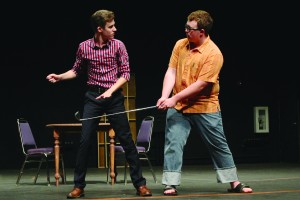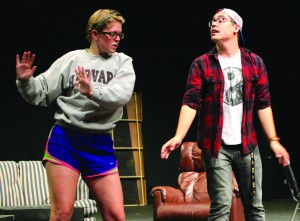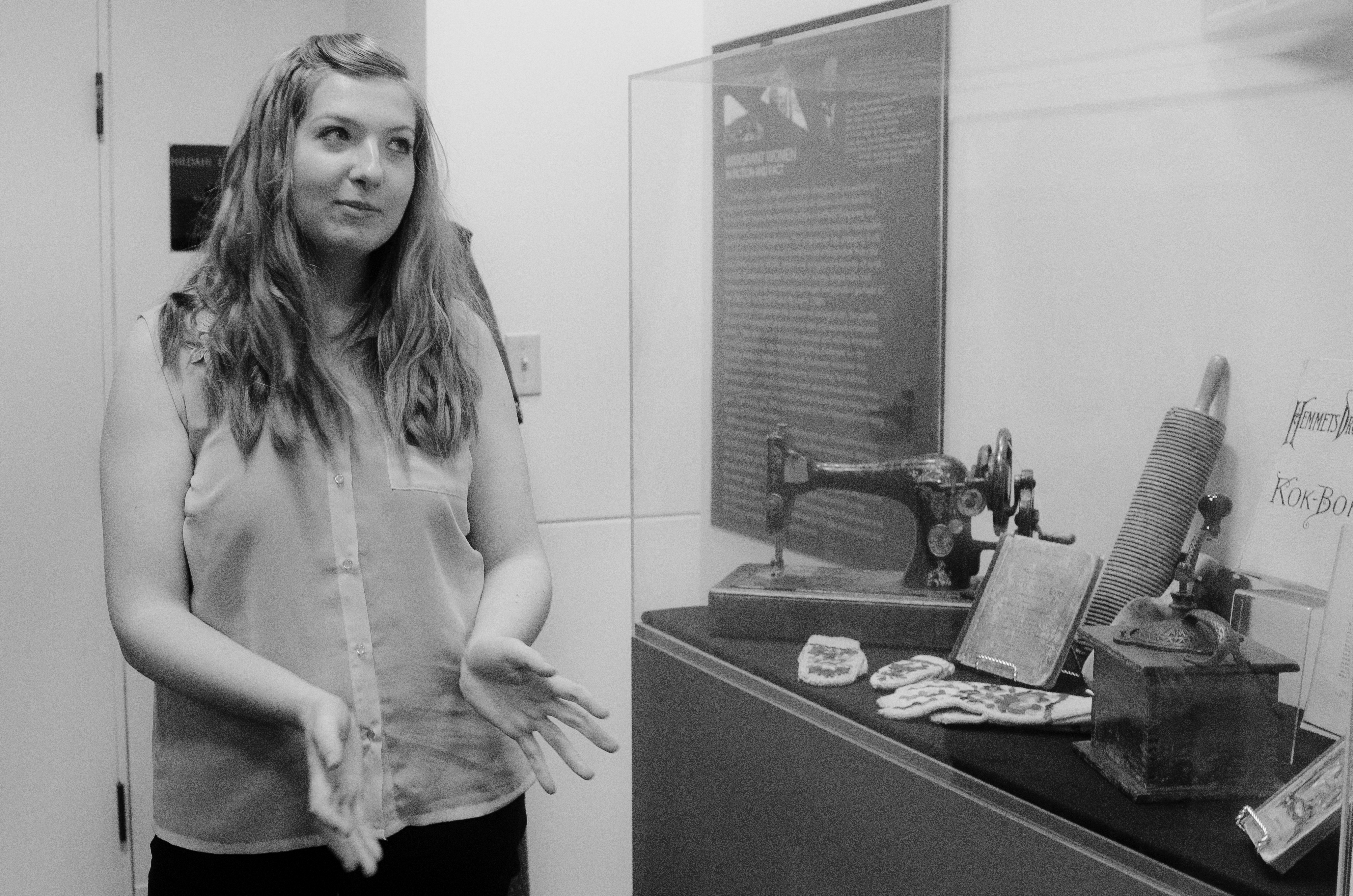
By MICHAEL DIAMBRI
A&E Writer
On the stage, in literature and in art, one can learn about the hardships of the human experience. Pacific Lutheran University’s upcoming

production of “The Boys Next Door” hopes to honestly display the struggles of developmental disabilities.
Conner Brown, first-year and actor in “The Boys Next Door,” describes the show as honest.
“It will connect with people,” Brown said.
During its original production in 1988, the cast of “The Boys Next Door” faced the formidable challenge of displaying the everyday difficulties of living with mental disabilities and trying to appeal to an audience.
Opening on Oct. 16, under the direction of Jeffrey Clapp, an Associate Professor of Theatre, the cast of “The Boys Next Door” hopes to relate to its audience.

Set in Boston, Mass., “The Boys Next Door” provides a commentary into the lives of four developmentally disabled men who live in a group home with their caretaker, a young social worker named Jack, played by senior Mitchell Helton.
“The Boys Next Door” is both comedy and drama and audiences will laugh out loud and cry like a baby.
The main conflict of “The Boys Next Door” arises when Jack, the compassionate but exhausted caretaker, realizes he needs to move on with his life and pursue his dreams. As Jack deals with his own personal crisis, viewers get a glance at the daily struggles of the men living under Jack’s care.
Arnold, played by sophomore Anthony Aguilar, has a mild disability. He tends to be obsessive-compulsive and is extremely hyperactive.
Though Arnold is able to do a lot of things the other men can’t, he is constantly taken advantage of by co-workers and other outsiders because of his condition.
When Arnold becomes dissatisfied with life, he pronounces he’s running off to Russia. No one ever believes Arnold will do anything about the disdain he feels towards his life, until he does.

Norman, who is also developmentally disabled, is played by first-year Conner Brown. Norman is the romantic of the group. While working at a doughnut shop, he becomes obsessed with doughnuts and worries the resulting weight gain will impact the opinion of his love interest, Shelia, played by first-year Kathryn Wee.
Lucien, played by junior Sam Collier, is severely disabled and can’t read but still insists on checking out armfuls of books from the library. His disability funds are almost cut off when claims arise that he is faking his condition.
The last of the four men, Barry, played by first-year Jake Elliot, is a schizophrenic who believes he is a pro golfer. In Act 2, Barry’s abusive father visits him for the first time in years, proving to be harmful to his mental condition.
“The Boys Next Door” stars first-year students in four of the eight principal roles. Even though it is the first production of their PLU careers, the “newbies” in the play are tackling very challenging roles.

“I was horrified at first, but everyone in the department is so nice and helpful,” Brown said. “We just jumped in and learned really fast. The best part has been Professor Clapp’s direction. He knows how to get what exactly we are looking for.”
Brown values this direction greatly as he tackles the many nuances of playing characters living with mental disabilities.
“It’s difficult [playing someone with a disability],” Brown said. “It’s hard to find a balance of respectfully and honestly displaying a disability, especially in a play with elements of both comedy and drama.”
Members of the cast are learning that playing these roles with excellence is not about tricks of acting, but about faithful portrayal.
“The hardest part [of playing someone with this kind of disability] is making the characters honest and true,” Aguilar said. “We can do gimmicks to make them funny, but the characters are funny themselves and making them honest will bring out both the funny and true moments.”
With the hopes of being one of PLU’s top productions this fall, “The Boys Next Door” opens on Oct. 16 at 7:30 in the Karen Hille Phillips Center and runs through Oct. 26.

















